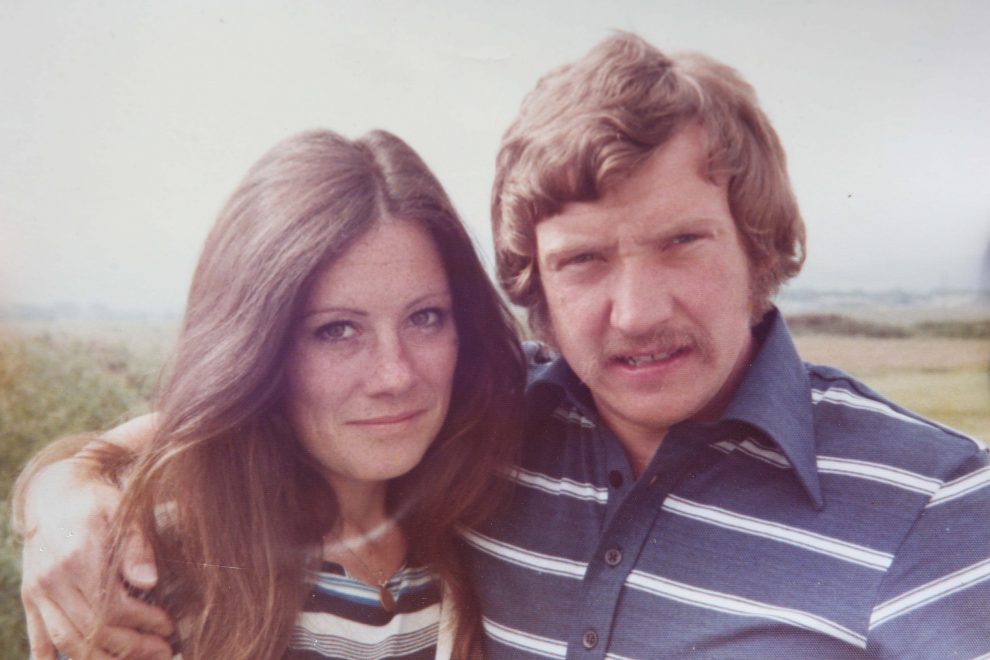THE wife of a former golf professional has shared a glimpse into her and her husband’s journey with dementia to help give a more hopeful picture of life with the condition as part of Dementia Action Awareness Week.
John Pilkington, 73 from Morfa Nefyn, Gwynedd, had a career as a golf pro at Nefyn and Pwllheli Golf Clubs, and also coached numerous European Tour golfers, including his son Mark.
John has been a resident with specialist dementia care provider Meddyg Care at its Criccieth home for more than four years.
His wife Glen said that although his condition has been difficult, there are still plenty of moments when she can see that her husband is enjoying life.
She said: “He chats away to himself and laughs a lot; hopefully he’s recalling happy moments.
“He was obsessive about Liverpool Football Club, but now he can walk past a screen and not even notice that football is playing. He was also fanatical about music, especially The Beatles, but that’s all gone.
“He has no recollection of his childhood or his career, so you can’t remind him of the things that were so important to him.
“John was relatively young when he showed signs of dementia but he never acknowledged that he was having problems. This made things like preventing him from driving especially difficult.
“Thankfully though, he never had the anguish of ‘what’s happening to me?’ or ‘why am I going here?’ when we went to numerous hospital appointments.”
Dementia itself is a set of symptoms which may include memory loss, difficulties in thinking and problems with language, as well as changes in mood.
The condition is most often the result of Alzheimer’s Disease, but can have other causes, such as a series of strokes.
And while the typical person with the condition is usually older, people of any age can develop symptoms, including more than 42,000 under 65s in the UK.
Glen added that modern communication methods have made it easier to see what life is like at Meddyg Care, which also has a home in Porthmadog, when she’s not able to visit.
“Meddyg Care shares pictures in its newsletter and posts images on social media,” she said.
“There’s a lovely image of him with the Easter Bunny, who was obviously a full height member of staff, and John is having a very animated conversation with them.
“There is outdoor space too. When John first became a resident, this was his salvation as he never felt that he was being restricted. He was able to open doors and go outside, even though he was going round and round the same path.
“The staff entertain the residents with a variety of activities and special events, and you get glimmers that he’s enjoying life, but it’s not the awful screaming bedlam scenes that people might imagine with John.”
Jo Cairns, area manager for Meddyg Care, says it’s still possible for those in the more advanced stages of the condition to enjoy life.
The company organises a wide variety of activities for its residents such as bowling, food tasting and art classes, with some able to continue to live with their partners.
Jo said: “We really enjoy finding new activities for the residents to take part in. They all have their preferences, whether it’s simply reading the newspaper or watching a film, or something more involved like chair yoga or gardening.
“Dementia can affect the senses, and one of the first to go can be the sense of smell, so we also have other activities like sensory tables; we have a dedicated activities manager who organises everything.
“We also invite people in to talk about their passions, such as sports or their profession. This has been via video during the pandemic, but it’s always wonderful to see when a topic or story rings that bell of familiarity for a resident.”
Many of dementia’s symptoms are well-documented and well known, such as memory loss and mood swings.
The change in a person’s personality can be difficult to deal with, but Jo says once you can deal with this in itself, accepting a person’s new behaviours becomes easier.
“Every person is different, so each person reacts to dementia differently,” added Jo.
“You have to learn a person’s new behaviours and adapt to them. Once you take that step, it becomes easier to cope with the more difficult aspects of the condition.”
For more information, visit www.meddygcare.co.uk


















Add Comment